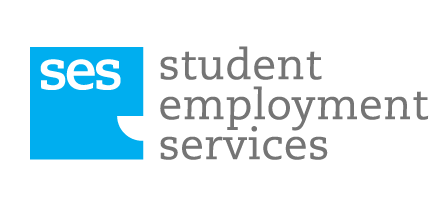CAREERS ADVICE
We have come up with a simple guide to help you with writing your CV, Cover Letter and preparing for Interviews and hopefully land you the Student Placement, Internship or Graduate Job you want. We hope you find our guide useful like it has done to Students and Graduates in the past.
Remember: First and foremost before you hit the ‘Apply’ Button when you are interested in a role:
‘Tailor your CV and cover letter’
Don’t just apply for every job on the website. Not only does this reflect a lack of attention to detail, but you also demonstrate an “any job will do” attitude (and this is not attractive to employers/recruiters). Instead, keep focused and be selective in the role you are truly interested in applying for. You have 30secs to impress the recruiter/employer so make sure you take time and it stands out.
- Try to keep it to two (2) pages.
- Should be simple and easy to read.
- Must have a ‘Personal Profile’ – use emotive language and words to get the employer to notice your CV. Keep it targeted to the job you are interested in applying for.
- ‘Key Skills’ should be on your 1st page – paint a pic on the employers eye on what you could be and how you could add value to them, should have a clear concise list.
- You don’t need to add a full list of your grades, could add key ones that could be seen relevant to what you are applying for.
- Tell the truth –the employer can spot these lies when checking your background and references.
- Check your CV before giving it to employers – for example if you are unsure use spell check or ask someone else to proof read it for you.
- Use bullet points.
- No unnecessary details – i.e. date of birth, marital status, national insurance number.
- Be concise and use short snappy statements that catch the reader’s attention.
- Have a clear style – use a clear and easy to read font – no smaller than 11 points.
- Have your Hobbies & Interest’ section varied. Talk about what you do outside your extra-curricular.
Sometimes when candidates CVs are hard to differentiate between one another, the employer/recruiter will look at the quality of their cover letter to decide. Or it is maybe the letter stands out more than your CV and they would like to meet you. Which ever way you look at it, having a well-thought tailored letter is important. So make it count!
- Why you want to work for the company
- What interests you in the role
- Why they should pick you
- Include the key characteristics they are looking for with some examples
- Be in a quiet place as you don’t need distractions.
- Be ready at least 10mins before so you don’t miss the call.
- Make sure you come across a confident speaker and show your enthusiasm for the role you are being interviewed for.
- Make sure you don’t talk too fast, sometimes nerves can get the better of us. So slow it down.
- Have a glass of water next to you, to help you, if you get tongue-tied.
- Standing up throughtout your phone interview can encourage natural assertiveness and confidence.
- Pre-prepare with cue cards/notes, if necessary, to help you prepare for answers that could be asked, i.e that tricky ‘tell me about yourself’ question could be asked.
- Keep focused on what question the interviewer has asked you.
- Re-read your CV & cover letter or application form and prepare loose answers to some of the questions that you think may arise.
- Try to do a research on the company website, ask relevant questions.
- Try to speak about the appeal of the role & company values.
- Get to the interview at least 10/15min before it starts so you are not late.
- Firm handshake with the interviewer.
- Dress to complement the industry you are trying to get into when going to the interview.
- Go over the job spec to refresh your memory.
- Practice saying things you might be asked in an interview rather than just writing it down on a piece of paper, especially when you are nervous.
- Research the company’s industry and their competitors.
- Ask them questions about the industry/company.
- See it like it is a chat.
- Stay focused on your end goal, stay motivated & positive.
- Stay focused on what you are saying.
- Body language is important, send good vibes in the interview.
- Keep smiling and be warm, make that person (interviewer) feel you want to be there and you feel it too.
- At the end of the interview, thank the employer for their time for seeing you.
The way you dress for a job interview is very important, you want to make a good impression but not be over the top.
Women
- A mid-sized heel is probably best if you want to wear heels. If you were to wear a pair that you couldn’t walk in it may make you more nervous, which is never a good thing!
- A shirt/blouse is always a good choice when attending an interview. A patterned/bold print shirt is always good as well showing your personality.
- A blazer is essential when going to an interview especially when you are attending more than one. A fitted blazer is a good choice as it makes you look classy without taking away your sense of style.
- Trousers are a safe bet for an interview but still can be dressed up appropriately. They can be worn with a fitted shirt and blazer, but also a smart jumper.
- Dresses are also a good option, but you have to be careful when selecting the right dress. Shirt dresses are usually the best option as they are nice but also smart.
- A bag is another thing that, investing in a good leather one is always a good idea, preferably one that fits everything in.
Men
- Every man needs at least two suits, but in solid plain colours not pinstripes! Grey and navy are often good colours to go with as they go with just about everything.
- A simple white shirt is also a good choice for the first interview as it is safe but still smart and goes with both the grey and navy suits.
- The tie is also an important thing because you don’t want to go to extreme with the pattern, so keep it simple and choose something that is not too extravagant.
- Black lace up shoes are the best option when choosing what to wear on your feet.
- Make sure that your shirt is ironed, tucked in and suit is clean, also that the tie is tied in a neat knot with the top button done up.
You have come to the right place for CV for Student Placements, CV for Internships, CV for Graduate Jobs, Cover Letter for Internships, Cover Letter for Student Placements, Cover Letter for Graduate Jobs




